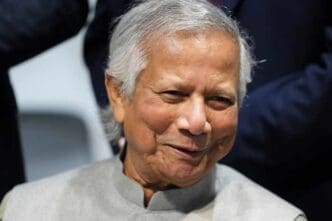In a significant legal development, Bangladesh’s High Court has acquitted Tarique Rahman, son of former Prime Minister Khaleda Zia, and 48 others involved in the 2004 grenade attack on a political rally. This decision arrives amid heightened political tensions in the nation.
The recent ruling by the Bangladesh High Court has nullified the 2018 verdict that found Tarique Rahman and 48 others guilty of orchestrating a grenade attack on a political rally in 2004. The attack targeted supporters of Sheikh Hasina, the leader of the opposition at the time, resulting in the deaths of two dozen individuals and injuring approximately 300 others. The court’s decision followed an appeal by the defendants, with a defense lawyer stating that the trial and its outcomes were deemed ‘illegal’ by the panel of judges.
Rahman, who was previously sentenced to life in prison, currently resides in self-exile in London. He functions as the acting head of the Bangladesh Nationalist Party (BNP) and his acquittal could potentially influence the political landscape, especially if his party gains power in future elections. The BNP has welcomed the court’s decision, viewing it as a triumph over what it alleges to be politically motivated charges.
The backdrop of this ruling is a nation grappling with instability following Prime Minister Sheikh Hasina’s departure to India, prompted by a mass uprising earlier in the year that resulted in numerous casualties. Nobel Peace laureate Muhammad Yunus has been stepping in as the interim leader. However, the environment remains volatile with reports of mob justice and allegations of bias against minority communities, which Yunus has described as ‘exaggerated.’
The political feud between Zia and Hasina, two of Bangladesh’s most influential political figures, continues to fuel tensions. The interim government, led by Yunus, has yet to schedule the next election, while Rahman and the BNP push for a swift electoral process. Additionally, the Awami League, Hasina’s party, criticized the court’s ruling, asserting through social media that the people of Bangladesh should hold those accountable for the 2004 attacks.
The Jamaat-e-Islami party, a former coalition partner of Zia’s, has expressed support for allowing the Yunus-led interim government to implement reforms before any new election. Meanwhile, legal attempts to extradite Hasina from India face uncertainties, despite Bangladesh seeking Interpol’s assistance.
The attorney general’s office holds the right to challenge the acquittal in the Supreme Court, potentially extending the legal and political battles further.
Bangladesh continues to navigate complex political dynamics, with future developments likely influenced by this landmark court decision.
The High Court’s acquittal of Tarique Rahman and others has introduced new variables into Bangladesh’s political landscape. As the country faces ongoing challenges, including leadership transitions and demands for electoral reform, the ramifications of this legal verdict will likely resonate in the national discourse.
Source: News4jax








